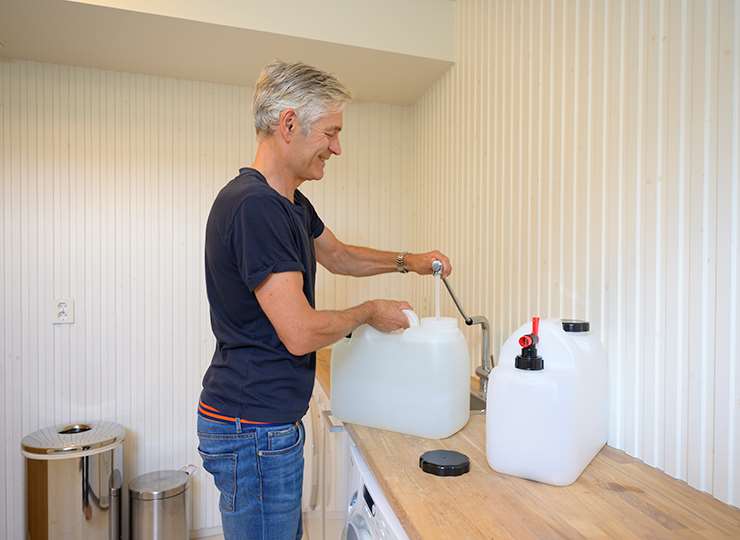
Good hygiene if the water supply fails
Poor hygiene can lead to infection and sickness. If you no longer have a tap water supply, personal hygiene and cleanliness are more of a challenge. However, with a little planning, you can maintain good hygiene in a crisis.
Advice regarding good hygiene
- Keep a supply of wet wipes, alcohol-based hand sanitiser and disposable gloves in your home.
- Store extra toilet paper and waste disposal bags.
- If anyone in the household uses nappies, menstruation or sanitary products, you should keep an extra supply.
These days, access to water is something that we take for granted. We wash our hands several times a day and a daily shower also goes without saying for many. But what happens if the water supply disappears for a longer period?
Without access to water, personal hygiene can quickly become a challenge. Poor hygiene is a breeding ground for infection and sickness. It is important to have a plan should this happen, particularly with food and food preparation in mind.
If the water supply fails for a longer period
Good handwashing routines are important to avoid sickness and bacteria. You must therefore be scrupulous with personal hygiene, particularly after going to the toilet and before preparing food.
Keep your home clean and tidy. If you are careful when throwing away waste and surplus food you can avoid problems with bacteria and pests.
If you cannot use the toilet, you can create an emergency toilet by pulling a double carrier bag around the toilet seat or a bucket. Tie the carrier bag with a double knot and throw it into a regular residual waste container.
Water from hot water tanks and other sources
Water from a domestic hot water tank can be used in a crisis. Pull out the power plug before you drain water from the stopcock at the bottom of the tank - however, remember that this water should not be used for drinking.
You can also consider collecting water from the roof, rivers or freshwater for cleaning or personal washing. In the event of nuclear fallout or chemical discharges, the sources can be highly contaminated and unsafe to use. You must therefore first seek information from the authorities.

